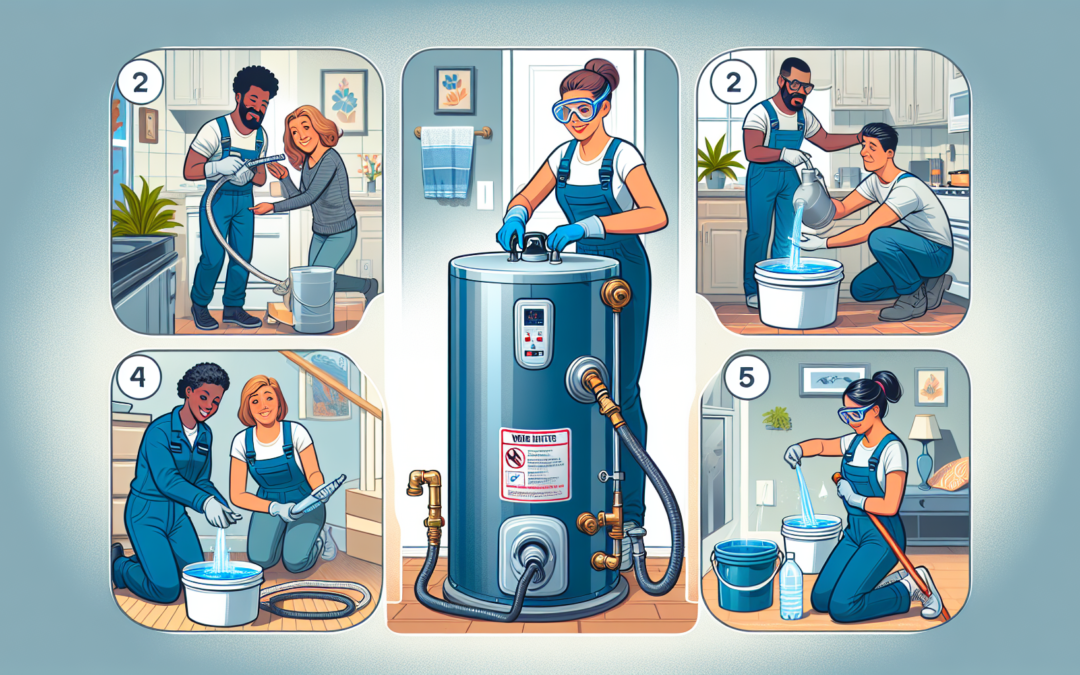Have you ever considered the importance of maintaining your water heater? Ensuring your water heater is functioning at its best not only secures the supply of hot water to your home but also helps in conserving energy and reducing utility bills. One of the key maintenance tasks for water heaters is flushing them out on a regular schedule.
The process of flushing water heaters is crucial for their lifespan and efficiency, discarding the accumulated sediment at the bottom of the tank. It might seem an intimidating task, but with the right guidance, even someone with minimal plumbing skills can do it. Our expert Dayton plumbers are always ready to assist, but if you prefer a do-it-yourself approach, read on.
Keep your water heater at its best with regular flushing
The flushing process of a water heater involves draining the tank completely to remove any deposits of sediment, minerals, and other debris. These materials can affect the efficiency of your heater by creating an insulation layer at the bottom of the tank that forces the heater to work harder and consume more energy.
Signs that indicate the need for a water heater flush
Conducting regular maintenance checks can prevent potential water heater tank leaking or malfunction issues. Here are a few signs that indicate it may be time to flush your water heater:
- Noisy Tank: If your water heater is making strange noises, it could be a sign of sediment buildup at the bottom of the tank.
- Cloudy or Foul-smelling Water: This could indicate mineral or sediment contamination within the tank.
- Insufficient Hot Water: Struggling to get hot water could be because of a thick sediment layer causing inefficiency in heating.
Steps to flush your water heater
While water heater repairs can be complicated, flushing your water heater is a relatively straightforward task. Follow these steps to effectively flush your water heater:
- Turn off your water heater. If it’s a gas water heater, turn off the gas supply valve. If it’s electric, switch it off from the breaker box.
- Connect a garden hose to the drain valve. Make sure the other end leads to an appropriate drainage area.
- Open the drain valve and allow the water to flow out until it’s clear with no sediment.
- Close the valve once you’re sure the water is clear, disconnect the hose, and then turn the water and power back on.
If you notice your gas water heater is not working or your electric water heater is not working during this process, it might be time to consider a water heater replacement.
How often should you flush your water heater?
A commonly asked question is about the frequency of flushing a water heater. The answer varies depending on the quality of your local water. If you have hard water, flush your tank every six months. For soft water, a yearly flush should be sufficient.
If you’re unsure about the state of your water heater, consulting a professional is advisable. At Dayton Plumbing Services, we offer expert advice on what size water heater you need or any other water heater-related queries.
The long-term benefits of flushing your water heater
Beyond better performance and energy efficiency, regular water heater flushing ensures:
- Increased Lifespan: Constant sediment buildup can cause your water heater to fail prematurely. Regular flushing can extend its lifespan significantly.
- Improved Safety: A neglected water heater could potentially become a safety hazard with the risk of bursting or leaking.
- Lower Energy Costs: A clean water heater operates more efficiently, using less energy and thus reducing your utility bills.
If you’re wondering about the water heater prices, investing in regular maintenance can be significantly cheaper than dealing with the consequences of a neglected water heater.
In conclusion, whether you’re using a gas or an electric water heater, ensuring it’s clean and efficient helps guarantee a steady supply of hot water to your home. By recognizing the signs and knowing the steps to flush a water heater, you can prevent potential issues and ensure longer life for your appliance. Whether you need help with water heater maintenance or a quote for our services, don’t hesitate to contact our team at Dayton Plumbing Services. After all, your peace of mind is what matters most to us.

